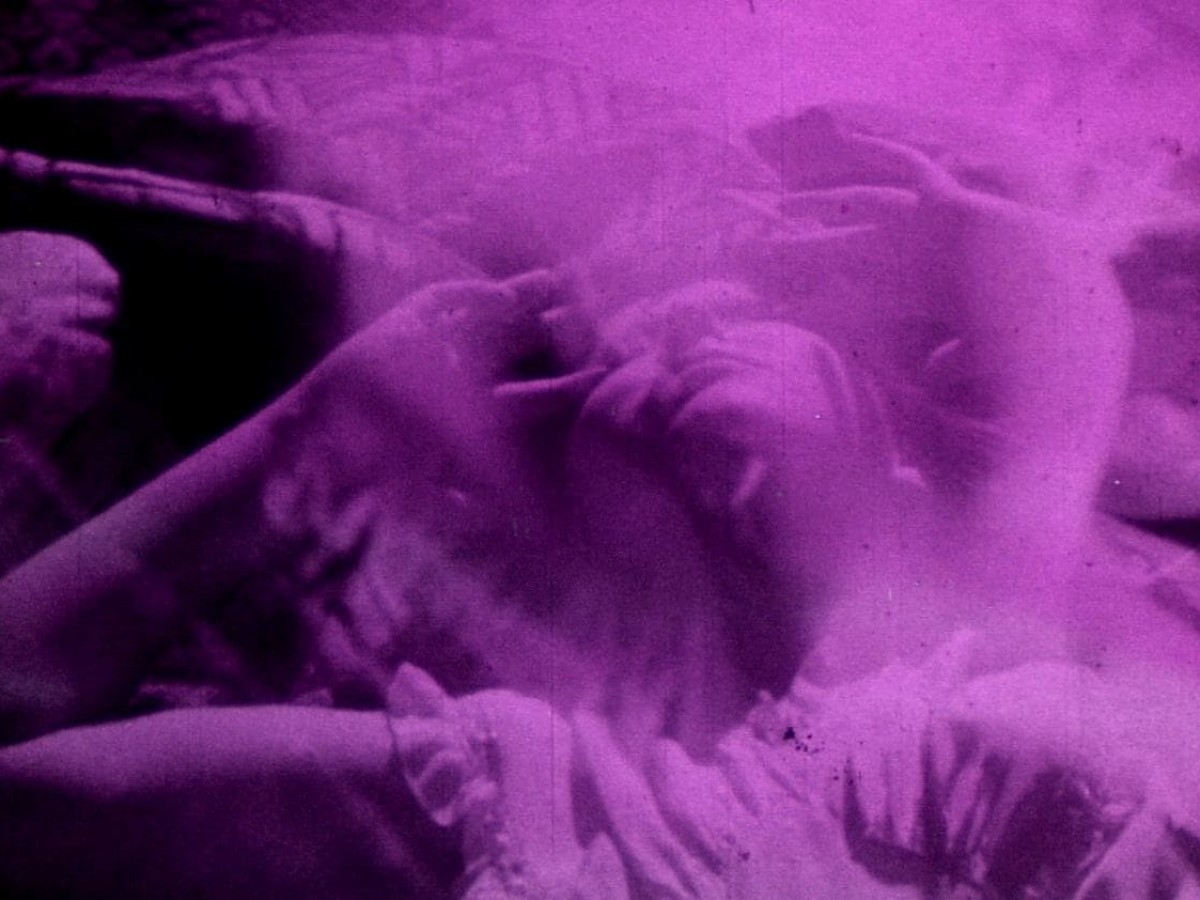Films You Cannot See Elsewhere
The Amos Vogel Atlas 22
Cinédoc
September 17 and 18, 2025
The Paris Films Coop formed in France in 1974 as a cooperative of independent experimental filmmakers with the goal of widely disseminating their work. Through connections with the Experimental University of Vincennes, the magazine Melba, and ciné-MBXA, the Coop later went on to become Cinédoc. For the past five decades, the Cinédoc Paris Films Coop association has been fervently preserving, distributing, and promoting avant-garde and experimental cinema.
For its 50th anniversary, Cinédoc presents a selection of French films from the formative of the Paris Films Coop – innovative and surprising works that marked the renaissance of experimental French cinema in the 1970s. Three short film programs invite you to rediscover the singular, diverse, and radical aesthetics of a group of filmmakers working closely with cinematic materiality and perception, and experiencing an inventive jouissance-cinéma (pleasure cinema) freed from narrative-representational-industrial (NRI) settings, as Claudine Eizykman puts it in her seminal 1975 book of the same name.
Federico Rossin: "To put these films back into circulation today in a program designed to make them resonate in and against the current imagination means flooding our present with joy: the indocile joy of a generation of very young artists who sought to attack the cinema of their contemporaries head-on, destroy that of their fathers, and thus rediscover the purity and radicality of that of their grandfathers, the sacred monsters of the 1920s avant-garde. This is a program that shows not just a utopia made real, but the reality of an artistic practice and a way of life that actually existed." (Bárbara Janicas, Beatriz Rodovalho, Dominique Willoughby)
With introductions by Dominique Willoughby
Amos Vogel (1921–2012), an Austrian-born Jew, became one of the most important figures in international film culture after his emigration to the United States. The Amos Vogel Atlas is a series dedicated continuing Vogel's oppositional legacy alongside the study of his literary estate, which is deposited in the Film Museum.
The Paris Films Coop formed in France in 1974 as a cooperative of independent experimental filmmakers with the goal of widely disseminating their work. Through connections with the Experimental University of Vincennes, the magazine Melba, and ciné-MBXA, the Coop later went on to become Cinédoc. For the past five decades, the Cinédoc Paris Films Coop association has been fervently preserving, distributing, and promoting avant-garde and experimental cinema.
For its 50th anniversary, Cinédoc presents a selection of French films from the formative of the Paris Films Coop – innovative and surprising works that marked the renaissance of experimental French cinema in the 1970s. Three short film programs invite you to rediscover the singular, diverse, and radical aesthetics of a group of filmmakers working closely with cinematic materiality and perception, and experiencing an inventive jouissance-cinéma (pleasure cinema) freed from narrative-representational-industrial (NRI) settings, as Claudine Eizykman puts it in her seminal 1975 book of the same name.
Federico Rossin: "To put these films back into circulation today in a program designed to make them resonate in and against the current imagination means flooding our present with joy: the indocile joy of a generation of very young artists who sought to attack the cinema of their contemporaries head-on, destroy that of their fathers, and thus rediscover the purity and radicality of that of their grandfathers, the sacred monsters of the 1920s avant-garde. This is a program that shows not just a utopia made real, but the reality of an artistic practice and a way of life that actually existed." (Bárbara Janicas, Beatriz Rodovalho, Dominique Willoughby)
With introductions by Dominique Willoughby
Amos Vogel (1921–2012), an Austrian-born Jew, became one of the most important figures in international film culture after his emigration to the United States. The Amos Vogel Atlas is a series dedicated continuing Vogel's oppositional legacy alongside the study of his literary estate, which is deposited in the Film Museum.
Related materials
Photos 2025 - Dominique Willoughby
Books Film as a Subversive Art
Link Contributors
Link Amos Vogel Library
Link Cinédoc
Project Amos Vogel – 100 Years of Subversion
Film Series Amos Vogel Atlas
Link Amos Vogel Library
Link Cinédoc
Project Amos Vogel – 100 Years of Subversion
Film Series Amos Vogel Atlas
